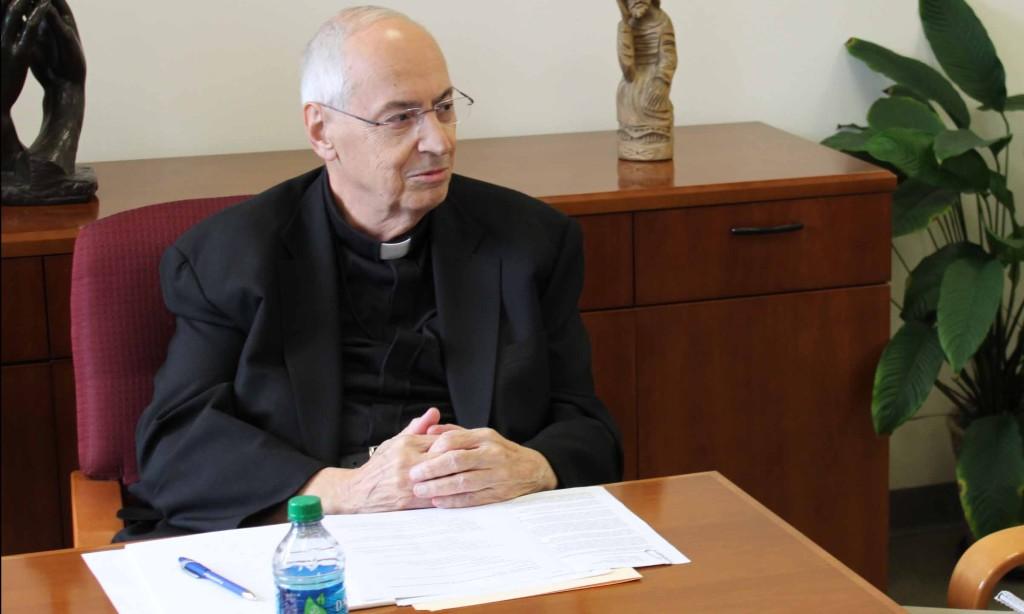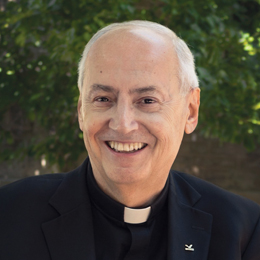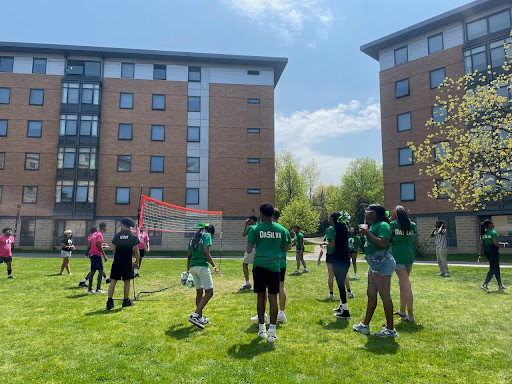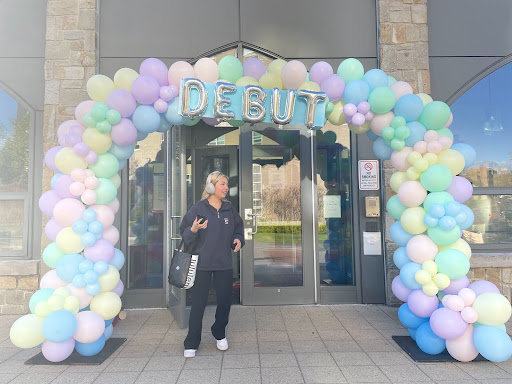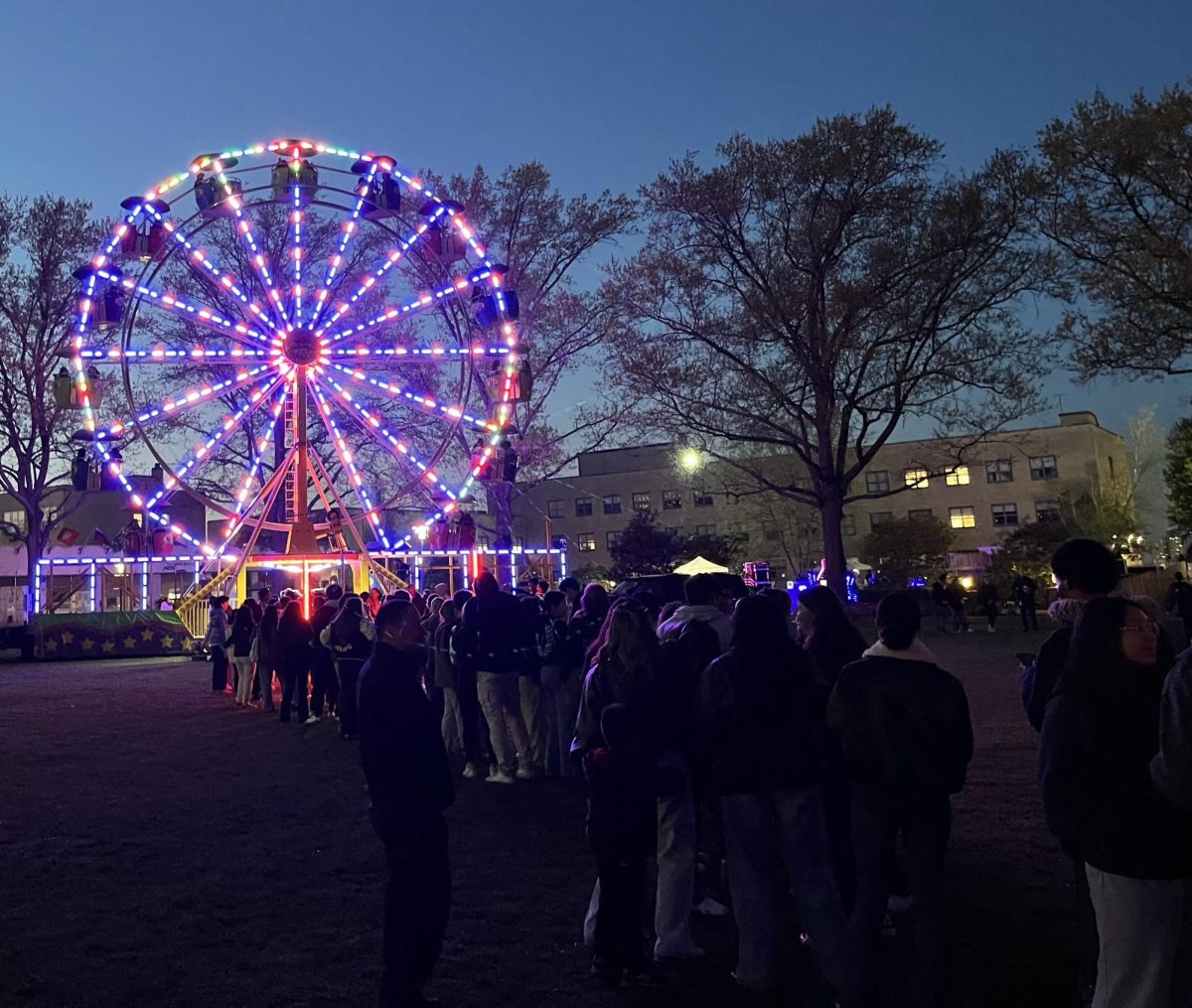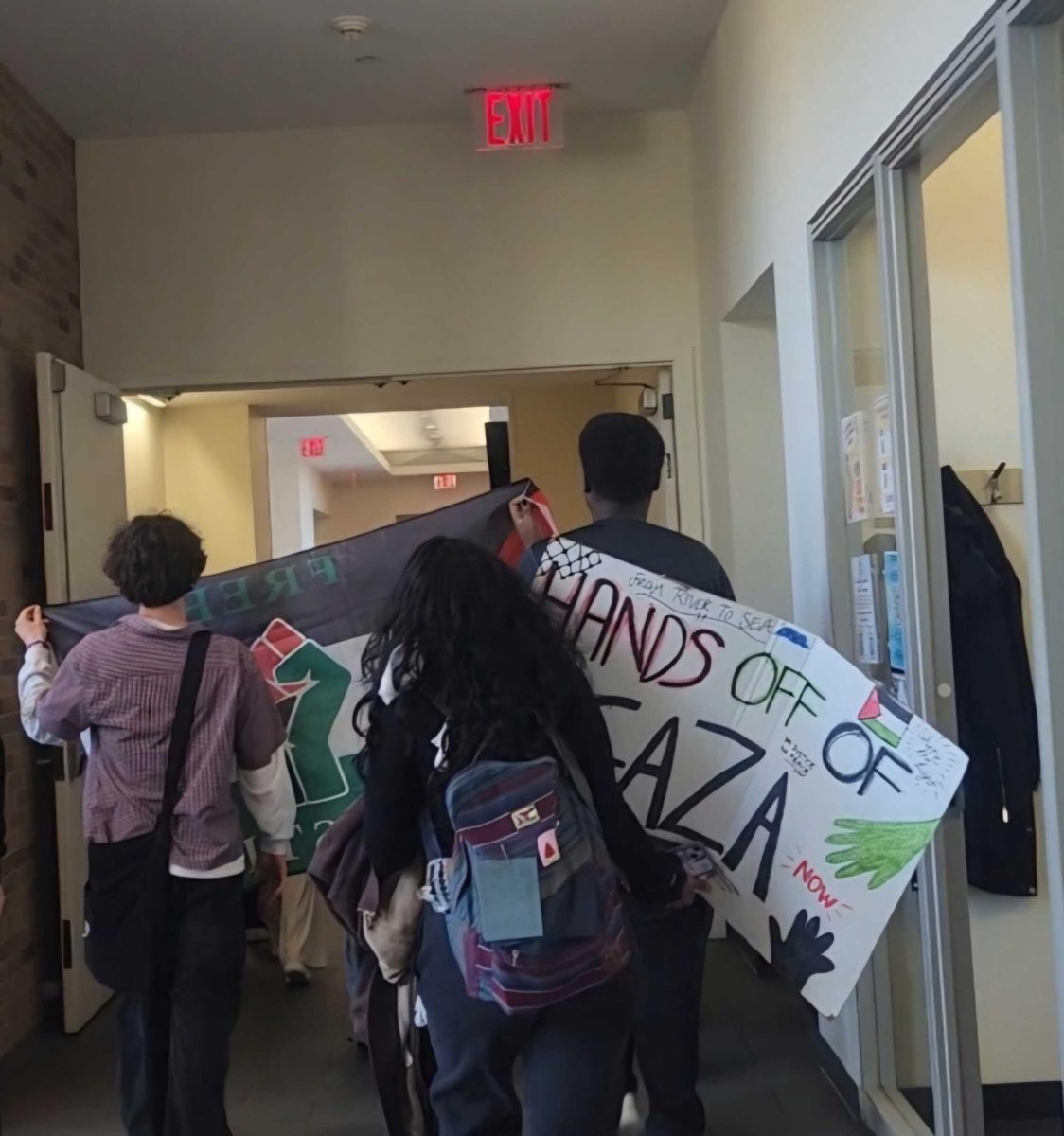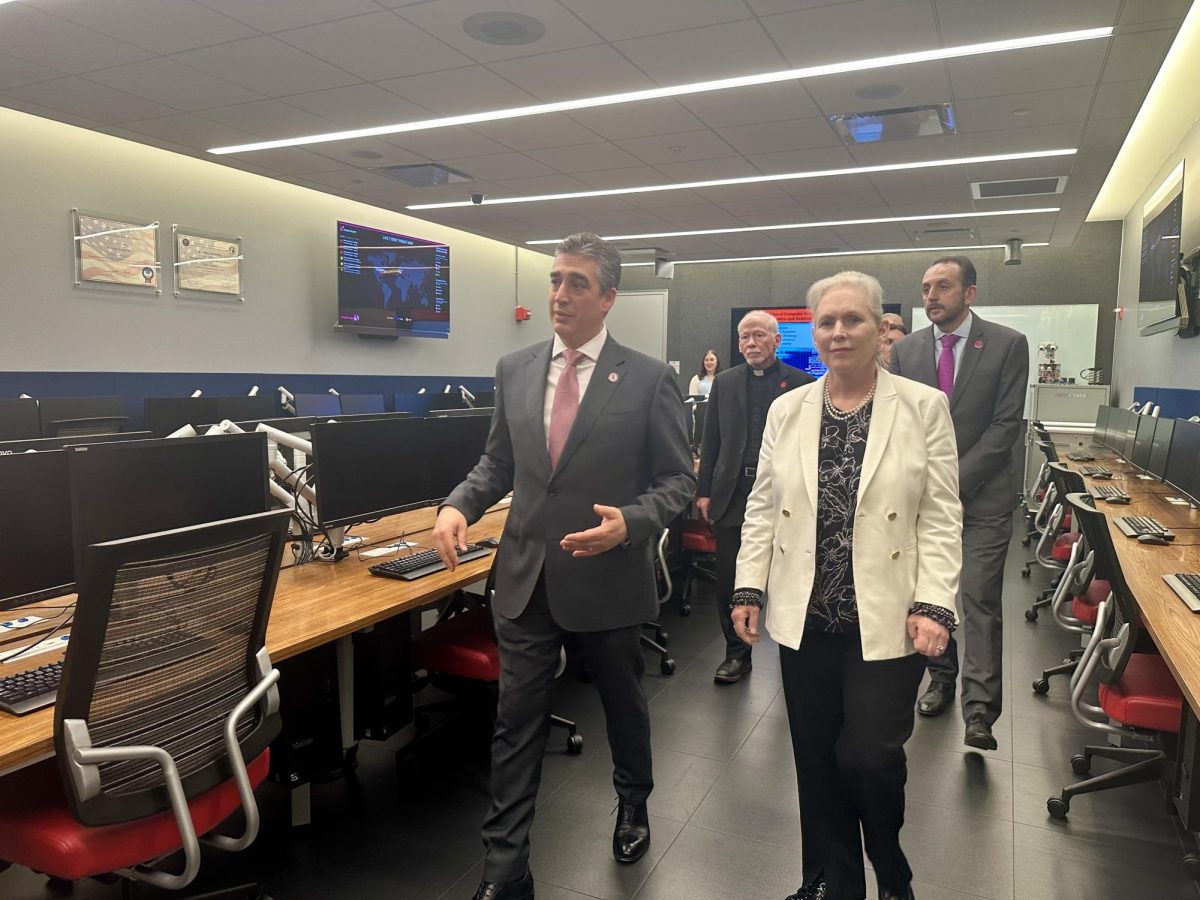The Torch sat down with recently named interim-Presdident Rev. Joseph L. Levesque, C.M.
The 75-year-old Vincentian priest, who will lead the University for one year, spoke about his past with St. John’s and Niagara University, his plans for his tenure and moving forward following a year that saw the departure of former President Rev. Donald J. Harrington, C.M. amid calls from the University community for increased transparency from the administration
TORCH: You must have had some prior experiences with the campus [as St. John’s Board of Trustees chairman], with the school. Could you just tell me a little bit about that, as far as your experiences in the past?
Rev. Joseph L. Levesque, C.M.: As the chairman of the board, of course, I worked with all of the board members and they were a very collaborative group. Some of them I’ve known for a long time and it was a great experience. I found that we were at a time, then, of building the University in very new and wonderful ways. So that fact that it was just a day-hop school at one time, and now it is a resident school with so much growth all around – brand new buildings. And the board was very much a part of that – making bigger decisions, making sure we had the money, there was a campaign at that time too, so they were wonderful days. They were working very collaboratively with each other and working for the growth of the institution so I loved them. They were happy days, we worked hard, we had to raise a lot of money but we did it.
TORCH: What was your impression of the school at that time overall?
JL: That it was a very fine school. That it was looking at those things that they had to be very concerned about: the SAT scores of the students coming in, incoming students who were much easier then than now [with] fewer students out there, so that was good. That was a blessing to us. So we worked at not only the facilities … But then also what kind of student are we bringing into St. John’s and we wanted to make sure they were high quality students. … Every academic institution wants to have the brightest students they can and that was what we committed ourselves to and I think we were very happy with doing that.
TORCH: What led you to decide to retire?
JL: I’m 75 years old, not a bad age to retire. Some people retire much younger. My whole life has been education, higher education. I did teach high school. I did teach college. I got to teach graduate school, but I was in administration most of the time and I loved it. I kind of grew with it. Before I was ordained I feared becoming a teacher, but that’s exactly what they asked me to be, my community, and I said yes and I’ve loved it. I loved coming into Niagara University. Niagara University is a very small university compared to St. John’s. We are approximately 3,600 students and that’s a wonderful number. I’ve been very happy with that role and I was president for 13 years. When I started as President, I had reached at least the age of 60-61. I told the board I don’t know why you would want to select me at my old age, and they said, ‘we want you, don’t worry.’…People who retire usually say, ‘I can sense it’s time.’
TORCH: So then you must’ve got a phone call from St. John’s, what went into that decision to come here?
JL: They asked me if I were interested. If that was to be the decision of the Board, to invite someone like myself to become the interim President would I be willing to do that? And I just made a qualification. I said, ‘if you are asking me do I want to go and be the President at St. John’s? No,’ I said, ‘not really.’ But if you’re asking me, ‘We need you. We think you’re the right person. Would you please do this for us?,’ I said my answer will be yes because that’s what I’m all about. I serve at the will of my community. I serve for the good of others if I’m really needed and that’s why I said yes.
TORCH: So coming into this role, what type of president do you think the school needs right now?
JL: Certainly someone who is going to bring the University exactly where it wants to be. So continued excellence in teaching, strong focus on the students, strong faculty – and I presume you do have strong faculty. But it’s always a constant thing to make sure that that happens. When I was at Niagara University, I started as a teacher and I became a dean. As a dean, I hired many faculty and I see those faculty now as senior faculty. Now I see a lot of younger faculty coming on, and I love the younger faculty, and I say, ‘Well I think I chose well in the faculty that I appointed as dean, and now I see great faculty coming aboard.’ You always have to pay attention to that. Right now as you know you’re going to need someone as President who is going to make sure that the shortages in enrollment that we have, the fewer students we have applying and staying – so retention is an issue – that has to be handled, grabbed and worked on right away because everyone is competing for the same one or two students. ‘Won’t you come to us, we’ll give you $5,000 more than they will give you’ or something like that, so it’s a constant task. You need someone vigorous, someone who knows the business of academia, a real academicion, I think, someone who is going to know the history of the school, where we were, that we were simply, a very, very good day-hop school and we brought in the sons and daughters of immigrants for a long, long time, and now we need a new person to do even more wonderful things for the University. But a solid focus on students and a solid focus on faculty.
TORCH: You touched on faculty. Over the last year faculty really had some issues or perceived that there were issues with transparency with the administration, do you have any plan of how you would tackle that kind perception with the faculty?
JL: I will try to be as transparent as I can be. You know, sometimes these things are a matter of personalities or whatever, but I love to be with students. Now as an administrator, as President, it’s very difficult to spend a lot of time with students because the people who are coming to see you are the other administrators trying to move the University forward, working with the faculty, working with issues, all our faculty are unionized. But I think the transparency comes about when you have that desire and opportunity to spend more time with the very important people. So what I will do in the time that I have here, I’m interim, I will try to do that. As a matter of fact, I just negotiated to get myself a golf cart and the golf cart will get me in places on this campus where the students are. I’ll go find them. I’ll say hello and I’ll join your picnics and I’ll join your parties and I’ll join your work sessions and your academic convocations and to me that’s very important. … Transparency is a matter of personality, so I can only say to you that I will be as transparent as I can. And if I have any role to play and select in a new president, we have to make sure that he/she is quite transparent.
TORCH: Have you encountered any other issues from coming in from a tumultuous year, people outside in the community have a certain perception of the way the school is run, or not run, whatever. How do you go about just dealing with those people, dealing with those issues?
JL: I think the very best way is to be as direct as can be. I have had letter from alumni, I’ve had letters from faculty, saying to me: ‘Father, what you have to do is have sessions and be as honest and open with the faculty, with the alumni as you can be. Invite more people to participate with you and talk to you’ and just this morning, [Executive Vice President] Martha Hirst and I sat and talked about that and we want to set up a couple of those opportunities and with the students as well. So meet the challenge, meet the requests that they’re throwing at us and there is nothing to be lost by it. It’s really just to be as honest and direct as possible. So that’s what I intend to do. And always remember that I have to be careful because I’m interim, I can’t set policies that are going to last 30 years. I have to be careful.
TORCH: So does it make everything more difficult? That you kind of have to carry the torch over but not really…
JL: Easy and difficult, easy because I know I won’t be here forever, but difficult because I know I can start a lot of new things. But it really depends on the next president to carry that forward. So it’s a little bit of both. I feel very good about being here. Not because I didn’t want to retire. That’s still genuine, but more because there’s a need and I feel that need. When we celebrated mass August first, my first day in office here, we had students, we had faculty, we had friends of the University and it was just a wonderful celebration and people felt very good and I felt very good. So you know how you get great vibes on certain things? Great vibes that day. People welcomed me warmly and I tried to be as transparent with them as possible. I told them I don’t know that I can do an open door policy with 21,000 students and about several thousand faculty, but I’m going to try. I’m glad you came.
TORCH: You mentioned you were going to have a small role in the selection of the new president, can you elaborate on that?
JL: No I don’t know what the role will be. I certainly will have the responsibility of making sure that committee, the search committee, be established. But the most important people in that search will be the trustees. Two of the biggest responsibilities for trustees are hiring a new president and firing a new president – the biggest decisions to be made. And Father Harrington wasn’t fired. He decided to retire. But those are tough decisions and it’s the responsibility of the board. That’s their biggest responsibility. Now they do lots of other things, but those are really the key points I think. And so it will be them, principally, but I’m sure the students will be involved, I’m sure administrators, faculty, alumni – all the constituencies – they’ll all be involved and I’ll be very instrumental in forming that committee, bringing it in along with the trustees giving me guidance. It’s a difficult challenge, it’s a wonderful challenge, bringing together the right people. It’s going to be a national search, that’s my understanding, so we’ll have applications from all over the place – hundreds of applications, I’m sure and it will be great.
TORCH: Is there a requirement for the president to be a Vincentian priest?
JL: Yes, it used to be that it was required that the president be a Vincentian priest. But the board is of the mind in this day and age when there are fewer priest available – there are just fewer clergy – that most probably what we have to do, and that solidly hasn’t been determined yet, but I just presume it will be, namely that it will be a national search. All people will be welcome to apply. They may put a restriction on it. I don’t know, they may say ‘we would most want a Catholic person to be the leader of this Catholic university.’ But they don’t have to say that necessarily. What’s always asked of faculty, especially other administrators is, do you know what the Catholic and Vincentian traditions are? Can you talk about them? Will you support them?
TORCH: Have you been involved in the new Big East conference?
JL: No, but I know it’s there and I know that will be a part of… it’s just beginning and being formulated. I spoke to Father Harrington before he started his sabbatical and he told me one of the big pieces on the agenda for you will be the Big East, so I know about it, I know what I have to do, but no particulars yet.
TORCH: Do you have anything you wish to get across to students?
JL: I will very much look forward to being with students. So if there were organizations or groups of students that wanted me to come, tomorrow (Tuesday) afternoon, there is a Catholic scholars group and I’m going to celebrate mass for them and talk with them a little bit. I’m going to be at the student convocation I’ll say a few things there. I think the thing I would want to say is that I look forward to being with the students, talking with you, not exactly partying with you because that can sound wrong, but enjoying your good times, that’s what I look forward to.












